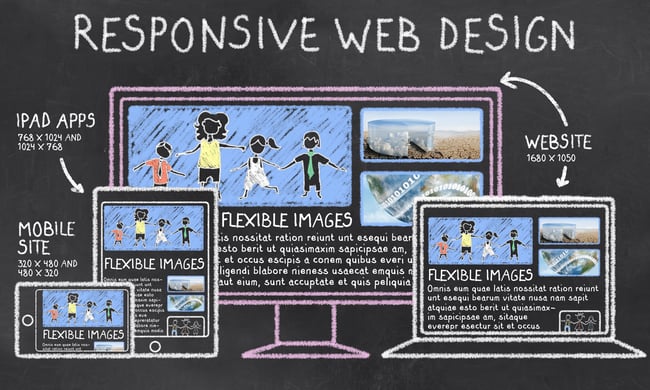I know that many small business owners sometimes scratch their heads and wonder, "Gee, it feels overwhelming to understand SEO and to stay up to date with best practices for getting my web page ranked." It is often difficult to ascertain what to follow and what to discard when adopting the right SEO strategy. We feel your pain and will help as best we can by continually posting best practices.
However, in a social world, it is often far too easy to fall victim to SEO myths that can damage your efforts and may hurt your chances of ranking in the year ahead. Here are four SEO myths that should definitely be avoided this year:
MYTH 1: Links > Content
Many continue to believe that links dominate over content when it comes to SEO, and this myth continually persists. The truth is, there needs to be a middle ground between the two to establish viable results.
Google constantly tweaks its algorithm, but it has been made clear that simple backlinks are no longer effective - the quantity matters more than quality, and thus content generation needs to be impeccable to maintain that balance.
MYTH 2: Keyword density is all that matters
Again, this goes back to content generation - as much of SEO does. Many still believe that keyword stuffing is the best practice, rather than letting it grow organically. With Google's Panda update, pages that were not optimized correctly, and contained thin and/or duplicated content have suffered in rank.
Rather than trying to jam in as many keywords as possible, aim to have it in organically - especially in headers and title tags. This is another case where quality is far more important than quality, and keyword strategy needs to be thoughtful and deliberate.
MYTH 3: Pay-Per-Click reigns supreme
In the short-term, that may definitely ring true. A well-deployed pay-per-click campaign will bring in traffic - but it comes at a price, and profit margins may not be able to withstand that kind of campaign in the long-term. Pay-Per-Click is good for a quick boost, but by no means should it be the sole strategy for SEO.
Really examine the kind of acquisition and traffic you are looking for versus the investment needed for an effective pay-per-click program before making any sort of financial decisions. A holistic marketing strategy uses SEO as a key tool, but this also means careful thought must go into any paid decisions. Pay-per-clicks may help in the short-term, but hold off on making any long-term commitments to those campaigns until you establish measures for return on investment when using pay-per-click, and if it is really worth the price.
MYTH 4: Mobile presence is overrated
Many websites design web pages that are built to maximize SEO, but often overlook the mobile presence. After all, if it renders fine on a desktop or a laptop, that should translate to other devices, right? And many continue to believe a mobile presence does need to exist for SEO purposes. However, this myth needs to be left behind.

Users are increasingly using their phones to access websites and search, and sites that are not optimized for mobile viewing will inevitably rank lower. A website that adapts to mobile devices greatly enhances user experiences, and Google has confirmed that mobile-friendly websites tend to rank higher in search rankings as it is a key measure when calculating rankings.
MYTH 5: SEO is a Scam
Perhaps this most harmful of myths stems from those seeking quick and easy wins with little effort. Indeed, there are cases of SEO wins that meet these criteria, typically when a site has easily correctable technical problems. In other cases, SEO involves real effort and commitment which often pays additional rewards beyond the increase in traffic.
It's sad to see organic search traffic fall over time, but all too often that's exactly what happens when no effort is applied. Continually maintaining your SEO efforts is essential because of:
- Link degradation (a.k.a. link rot)
- Evolving search engine algorithms
- The competition moving ahead of you
- Outdated content
- You need to publish new pages
To learn more about SEO, and how it can help your strategic marketing plans, please contact us.





Let Us Know What You Thought about this Post.
Put your Comment Below.